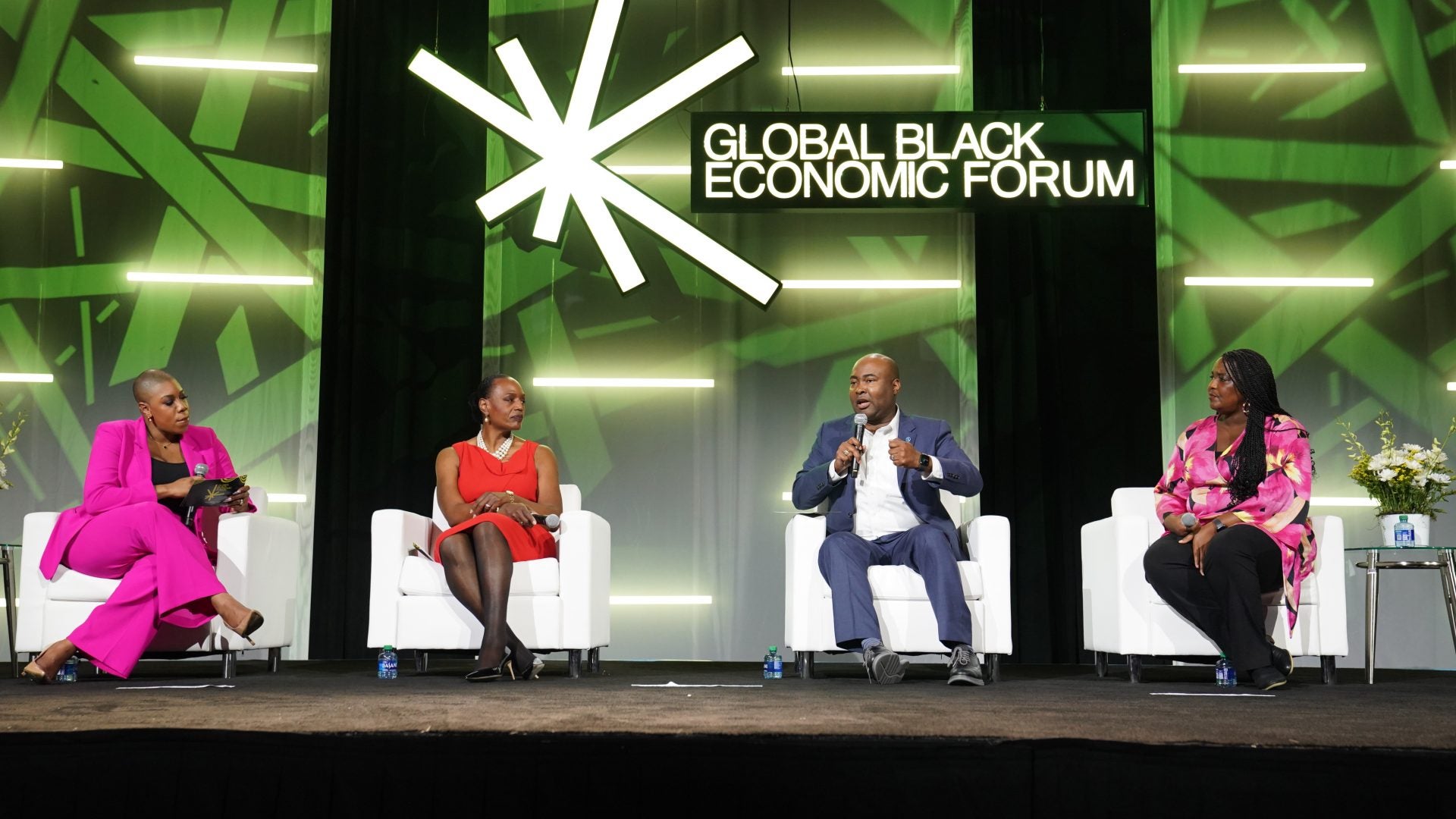
In an important discussion about voting and policy shifts in the development of Black wealth and power, the Chair of the Democratic National Convention (DNC), Jaime Harrison, President & CEO of the Congressional Black Caucus Foundation(CBCF), Nicole Austin- Hillery and President of civic engagement non-profit, Fair Count, Dr. Jeanine Abrams McLean, joined this year’s ESSENCE Festival of Culture.
In the wake of the Supreme Court’s decision to end affirmative action in college admissions, the conversation held on Friday during the Global Black Economic Forum(GBEF) was all the more crucial, especially when it comes to answering questions like how to maintain voter engagement in Black communities and where do we go from here?
“I wasn’t shocked by this court. We have seen this court, the Roberts Court, the legacy of this Roberts Court is going to be one where we have less freedom, less rights, and more discrimination,” said Harrison, who shared that he was the first in his family to go college and how it help transform not only his life but theirs as well.
“What you are seeing right now with this court is that they didn’t talk about the legacy of the third and fourth generations of people who went on to college, and their parents had been to college, and they got into that college because of that. They didn’t talk about the wealth and people just writing a check to get their sons and daughters into university. They looked at the experience of Black folks trying to make an in to try to do better, to try to live the American dream, and they uprooted all of that,” Harrison noted.
The DNC Chair also called out the Supreme Court’s decision to strike down President Biden’s student loan forgiveness plan. The conversation moderated by political strategist and commentator Symone Sanders-Townsend was a central part of the GBEF programming, which brings together global leaders, policymakers, activists, and celebrities to advance equity for the Black community and other marginalized groups.
Austin-Hillery said that what we are seeing play out in the nation’s highest court is a privilege and that people shouldn’t complain about what is happening if they don’t take the time to come together with organizations like the CBC to problem-solve.
“It was about ensuring that people who already have access to capital, to educational opportunities to housing to money, it was all about privilege. And the message that we got from the court is for those of you who are not privileged to step back.But the thing is this; we are not going to step back. History has shown us that our people do not take a backseat,” she said.
“Don’t sit back and complain about what is not happening. Don’t sit back and say I didn’t like what the court did. I don’t like what my lawmakers are doing in my state if you are not coming together with us and trying to figure out how to problem solve. That’s what we have to do, and that’s how we are going to pivot,” said the CBC Foundation President and CEO.
She encouraged the packed audience of attendees to join her at the organization’s annual legislative conference in September, which is the largest Black public policy conference held in the country as they come together to create more policy change and strategize a way forward amid the blows felt by many from recent SCOTUS decisions.
Harrison added that the Democratic party has to transform itself in order to maintain engagement. “It cannot just be a political organization that knocks on your door drops by your church three months before the election, it has to be a community organization, you are there all the time,” he said.
In closing, Harrison and Austin-Hillery shared that advancing Black wealth and power through voting and policy shifts requires ongoing effort and consistency. “Voting is not a one-time thing…We can’t just think because we vote one time, that means everything that we have is going to be secure. You have to constantly do it,” said Harrison.
“Do not sit and be a wallflower. Speak up and speak out at every opportunity you have… Be civic warriors. We each have this power, and that is how we are going to make a difference,” said Austin-Hillery.
“You can’t give up just because things have changed. Black folks have gone through so much in this country. And we will continue to go through a lot. But the one thing we know about us as a people is that we don’t give up. We don’t stop fighting. We continue to push and push because I’d be damned if I let my sons live in a South or in a country like my grandparents did,” said Harrison.